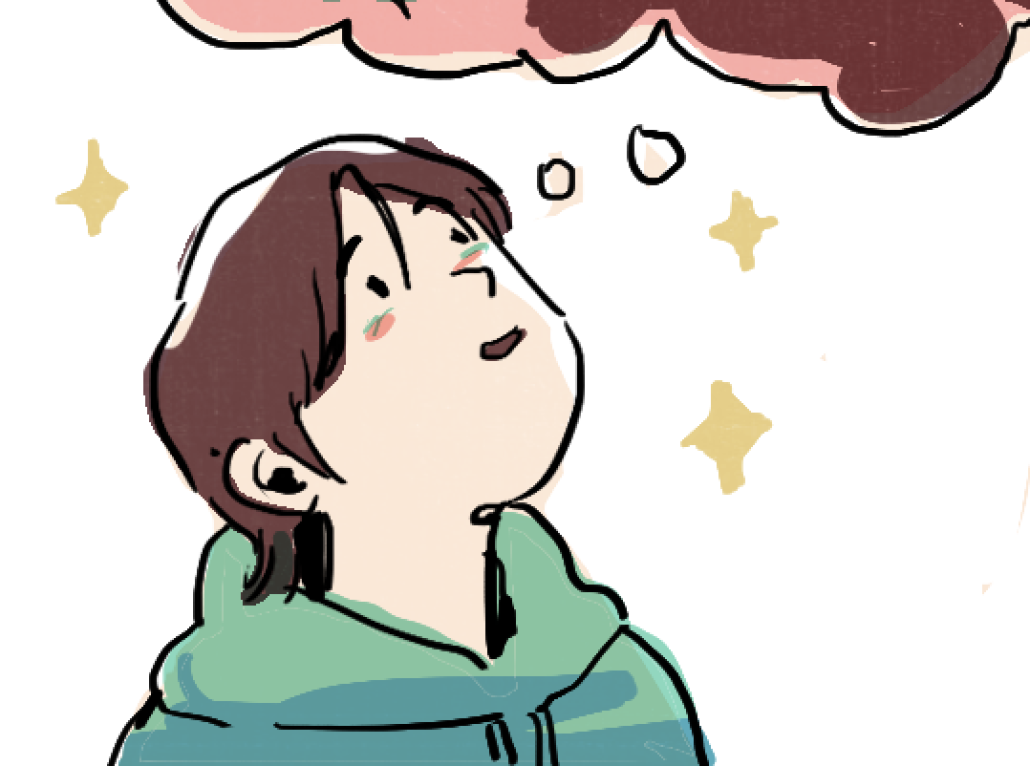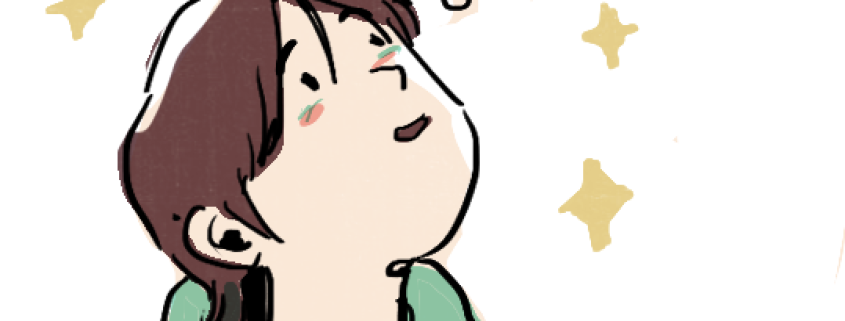I’m not normal, and I’m not sure if I’m okay with that

Editor’s note: The author for this article was granted anonymity based on their concern for being identified publicly as queer.
From what I can remember, I first became conscious when I was three years old. I felt this chill that spread from heart to toe; my vision zoomed into view, like in the movies where they warp the focal length super fast and everything becomes flat and wide; and I could feel the electricity of my neurons firing as I finally started gathering and processing information from the real world.
The immediate information I could gather was my mother was scolding me from across the hallway. I couldn’t pay attention to what she was saying. I could see, I could hear, I could feel, I could touch. This was my first memory, I thought; I was finally experiencing things and could forever store them, at least in part. I could breathe and remember I had breathed. I was alive. There was this feeling that I was invincible, immortal — as immortal as a three-year-old can be, anyhow.
That feeling never left. When I was nine — old enough to have more complex thoughts, but not enough for the thoughts to be coherent — I believed I was the Chosen One: God had set me down on this planet to see, to do, something so revolutionary it would be written in history books for eons. I didn’t know what exactly, but I knew that it was true nonetheless.
In middle school, I started experiencing attraction to the same gender, and I didn’t think much of it. I thought it was normal.
Over the next few years, I matured sexually, emotionally and intellectually, and I continued to experience attraction to the same gender. But slowly, and then all at once, I came to realize that my sexual attractions were most certainly not normal. It was the opposite of normal, in fact.
I was queer.
A common narrative I’ve encountered about sexuality is that people are happy, or at least satisfied, to finally put a label on their previously confusing emotions and experiences. But the day I realized I was queer was the most devastating moment of my life. I am a shy person; standing out is my worst nightmare. I want to be normal. The notion that, by merely existing, I would be the exact opposite of normal had me bordering on an existential crisis.
I have started noticing this trend of the queer community assimilating into “normal” society. They marry, they have kids. They flaunt pictures and anecdotes of their nuclear family proudly on social media. And a part of me is glad that this can be the case — so many have suffered for us to even exist in the public sphere without fear or shame — for the most part.
But another part of me wonders if we’re just whitewashing ourselves, participating in the patriarchal, heteronormative systems that are the root of our oppression rather than going the road less traveled and addressing them head-on.
I understand, at least logically, that normalcy is a fraud — perpetuated to establish in-groups and out-groups, to discriminate against the people we can’t immediately understand as “lesser” and “less human.” I understand, at least logically, by embracing this label of “queer” that was used to label others as the out-group — by straying away from the “norm” — I am perpetuating the same problems that normalcy creates.
But in truth, I am torn.
I want to be normal, and I want to be proud that I am not normal. Social norms — the concept of them, anyway — are comforting to me. They tell me how to act, what to wear, how to speak, when to speak. I can live my life with a certain assurance that what I’m doing is right. At the same time, I know the current norms divide us in horrid, nonsensical ways that are in dire need of change — if not outright abolition.
Reconciling my queerness with my desire to be normal will be a lifelong struggle. I see quite clearly the examples of those who have reached less desirable conclusions in their own struggles: Dave Rubin and other alt-right grifters, “Masc4Masc” profiles on Grindr, supposed “ex-gay” converts that are clearly still gay but were traumatized out of admitting it. I see those who seek to normalize being queer: gay celebrity couples, activists and, often, the government — Pete Buttigieg being one example, acting as if he were just your normal secretary of transportation, just with a husband instead of a wife.
I have come to know, in my heart of hearts, that none of these paths are right for me. I must chart my own way and find for myself what it means to be queer and to want to be normal. Perhaps all those issues that fall in between will sort themselves along the way. I can’t be sure until I get there.
I still believe I was put on this earth for a special reason. And I believe I have found that reason: to witness the day when I will reconcile this for myself — which will be, arguably, the greatest and happiest moment of my life.

